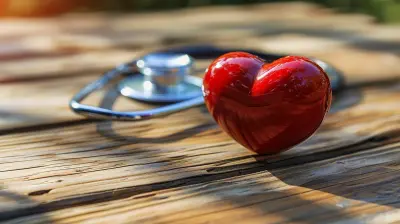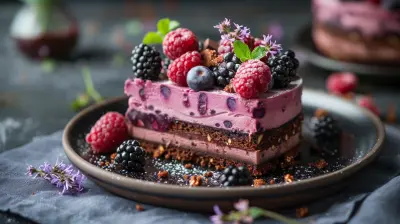Water vs. Sports Drinks: When and What to Drink
16 August 2025
Staying hydrated is essential for our overall health, but when it comes to quenching our thirst—should we reach for water or a sports drink? The debate between water and sports drinks is ongoing, and the answer isn’t always as simple as it seems.
Both have their place, but the choice depends on several factors: the intensity of your activity, how much you sweat, and even your personal health goals. Let’s break it all down so you can make the best decision for your body. 
Why Hydration Matters
Before diving into the water vs. sports drink debate, let's get one thing straight: proper hydration is non-negotiable.Water makes up about 60% of the human body, and every single cell relies on it to function. It helps regulate body temperature, aids in digestion, transports nutrients, and even lubricates joints. When dehydration sets in, you feel sluggish, dizzy, and unable to perform at your best—whether in the gym or at the office.
But does that mean you always need more than just water? Not necessarily. 
Water: The Gold Standard of Hydration
Water is the most natural and essential hydration source. It has zero calories, zero sugar, and no artificial ingredients—just pure, clean hydration. It’s perfect for everyday activities and even for most workouts.When Should You Drink Water?
- Daily Hydration: Your body needs water throughout the day to function properly, not just when you're thirsty.- Moderate Exercise: If you're doing light to moderate physical activity (like walking, yoga, or basic weightlifting), water is more than enough to keep you hydrated.
- Hot Weather: Sweating in the heat? Water helps replenish lost fluids and prevent overheating.
- Digestion & Metabolism: Drinking water before meals can aid digestion and even help with weight management.
The Downside of Just Drinking Water
While water is perfect for most situations, there are times when it might not be enough—especially after intense workouts that cause heavy sweating. This is where sports drinks enter the picture.
Sports Drinks: More Than Just Hydration?
Sports drinks are designed to replace electrolytes and provide quick energy through carbohydrates (typically in the form of sugar). Electrolytes like sodium, potassium, and magnesium help regulate muscle function, nerve signals, and fluid balance.When Should You Drink a Sports Drink?
- Intense or Prolonged Workouts: If you're exercising for more than an hour, especially at high intensity, a sports drink can help restore lost electrolytes and prevent muscle cramps.- Heavy Sweating: If you're drenched after a workout or exercising in extreme heat, sports drinks can help replenish sodium and potassium levels.
- Endurance Activities: Marathon runners, cyclists, and high-intensity athletes often rely on sports drinks to maintain energy and hydration.
- Illness or Dehydration Recovery: In cases of vomiting, diarrhea, or excessive sweating, sports drinks can help restore fluid balance faster than water alone.
The Downside of Sports Drinks
- High in Sugar: Many sports drinks contain as much sugar as a soda, which can lead to weight gain if consumed unnecessarily.- Artificial Ingredients: Some brands include artificial colors, flavors, and preservatives that might not sit well with everyone.
- Not Ideal for Everyday Use: If you're not sweating heavily or working out intensely, drinking sports drinks regularly can contribute to unnecessary calorie intake.

Breaking Down the Ingredients: Water vs. Sports Drinks
Let’s take a closer look at what you’re actually consuming when choosing between water and sports drinks.| Component | Water | Sports Drinks |
|----------------------|----------|-------------------|
| Calories | 0 | 50-130 per bottle |
| Sugar | 0g | 10-35g per bottle |
| Electrolytes | None | Sodium, Potassium, Magnesium |
| Artificial Ingredients | None | Often present |
| Best for | Everyday hydration, light workouts | Intense workouts, prolonged activity, illness recovery |
By comparing the two, it’s clear that water is a zero-calorie, no-nonsense choice, while sports drinks are more specialized for times when your body needs extra replenishment.
What About Coconut Water? A Natural Alternative
If you want something more than water but don’t love the idea of artificial ingredients, coconut water might be the perfect middle ground. It’s naturally rich in potassium and electrolytes but contains far less sugar than most traditional sports drinks.However, coconut water still lacks sodium, which is crucial for replenishing electrolytes lost in sweat. This makes it a good option for lighter workouts but not the best choice for endurance athletes needing a full electrolyte balance.
DIY Natural Sports Drink Recipe
Want the benefits of a sports drink without the artificial stuff? Try making your own!Homemade Electrolyte Drink Recipe
- 2 cups of water- ½ cup of fresh orange juice (for potassium)
- 1 tablespoon of honey (for natural sugar and energy)
- ¼ teaspoon of sea salt (for sodium replenishment)
Mix everything together, and you’ve got a natural electrolyte booster with no artificial additives!
Choosing the Right Drink for You
So, when should you drink water, and when should you opt for a sports drink? Here's a simple way to decide:Drink Water If:
✔ You’re doing everyday activities or light exercise✔ You want a zero-calorie hydration choice
✔ You’re not sweating excessively
✔ You want a clean and natural hydration option
Drink a Sports Drink If:
✔ You’re exercising intensely for over an hour✔ You’re sweating a lot and need electrolyte replenishment
✔ You need a quick source of energy during endurance events
✔ You’re recovering from illness or dehydration
A Balanced Approach
Instead of thinking of sports drinks as an everyday beverage, reserve them for when your body actually needs extra replenishment. For 90% of your hydration needs, water is the best option. For those high-intensity moments, sports drinks can be a helpful tool—just don’t rely on them when water would do just fine.Final Thoughts
At the end of the day, both water and sports drinks have their place in keeping you hydrated. Water should always be your primary source of hydration, but when you're sweating buckets during a tough workout or engaging in prolonged endurance activities, a sports drink can provide what water alone cannot.The key is knowing when to choose one over the other so you can stay properly hydrated without unnecessary sugar or calories. Listen to your body, pick the right drink for the right situation, and keep yourself fueled for whatever life throws your way.
all images in this post were generated using AI tools
Category:
HydrationAuthor:

Jackson Mahoney
Discussion
rate this article
1 comments
Zevros Larsen
Choose water for hydration; sports drinks are marketing hype!
September 2, 2025 at 3:29 PM

Jackson Mahoney
While water is often sufficient for hydration, sports drinks can be beneficial for intense exercise lasting over an hour, providing electrolytes and energy. It's important to choose based on your activity level and needs.


